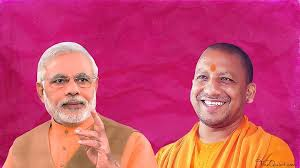Stefan Stern in The FT
“If you want power to be used for good, more good people need to have power.”
This quotation is usually attributed to Jeffrey Pfeffer, professor of organisational behaviour at Stanford University’s graduate school of business. Pfeffer himself is more modest about its origins. He cites it at the beginning of his new book — more on this later — but describes it simply as “a quote attributed to me”.
This slightly sheepish opening sums up an intriguing paradox about the man. He tells stark truths about management and power and what it takes to get to the top, which some may find unsettling. But, fundamentally, his purpose is compassionate. The challenge embedded in his famous aphorism is this: it is little use criticising the excesses of terrible leaders but then being too squeamish to engage with and win power yourself.
When I call Pfeffer at his Californian home he sounds a bit distracted, for reasons that become noisily apparent. “I need to move my car,” he says. “My garage is about to be . . . I’m having some construction work done . . . I’ll be back in a minute.”
He is true to his word, and proceeds to offer a tutorial on the realities of power, revealing why his course on the subject at Stanford, where he has taught for more than 40 years, is so popular with students.
“Exercising power and being a leader is not about winning a popularity contest,” he says. “It was Gary Loveman [former chief executive of the Caesars casino business] who said: ‘If you want to be liked, get a dog. A dog will love you unconditionally.’
“A lot of leaders are not necessarily nice people,” he adds. “Many of the things that leaders have to do are not necessarily nice . . . There is very little overlap — I mean, almost none — between companies on the ‘best places to work’ list and companies led by leaders who are on the ‘most admired leaders’ list,” Pfeffer says.
His new book, published this summer, is called 7 Rules of Power: Surprising — but True — Advice on How to Get Things Done and Advance Your Career. His seven rules are:
Get out of your own way — that is, speak with confidence and do not undersell yourself.
Break the rules — do the unexpected.
Show up in powerful fashion — with conscious body language and actual language.
Create a powerful brand.
Network relentlessly.
Use your power — do not be afraid to wield power once you have it.
And, finally, remember that “success excuses (almost) everything” — the powerful attract and retain support.
These rules are not simply plausible-sounding assertions but are in fact based on deep research and decades of social science experiment and observation. These are “the realities on the ground”, as Pfeffer says.
While clearly not a fan of former US president Donald Trump, Pfeffer notes that he was a skilful follower of these rules. “He was seven for seven,” he says. He describes the winning Trumpian mentality in these terms: “You tell me what I need to do to win, and I’ll do it. I will say anything, I will do anything. The question is: are you willing to do what it takes?”
This may sound Hobbesian and bleak. But note, too, that Pfeffer’s last book was called Dying for a Paycheck, and was a strong attack on the worst forms of modern management and the harm it can do both to employee health and company performance. An earlier book was called “The Human Equation: building profits by putting people first”. There is a touching passage in the book’s acknowledgements about the author’s late wife, Kathleen, who died last year and to whom the book is dedicated.
Our call is once again interrupted by an off-stage crash. “Pardon the background noise — they must be doing something serious here — they should be, for what I’m paying them . . . ”
In this latest work, Pfeffer writes: “One reason why people fail to achieve their objectives or lose out in competitions for high-status positions is their unwillingness to do what is required to prevail.”
This is his reality check for aspiring leaders and those who want to get on in the organisation. You have to take responsibility and put yourself in a position where professional advance is possible and likely. “Happy talk”, or “leadership BS” (the title of another of his books), will not get you there.
“I don’t think anybody is going to say that Elon Musk is sweet,” Pfeffer says, “or that Jeff Bezos is sweet, or Steve Jobs was nice, or Jack Welch was going to be picked by anybody to be stranded on a desert island with. Many leaders are narcissists,” he adds, “although their ‘autobiographies’ say that they are lovely human beings . . . ”
Pfeffer looks power in the eye and does not flinch. He tells it like it is. Can we handle the truth? If we want power to be used for good, more good people need to have power.
